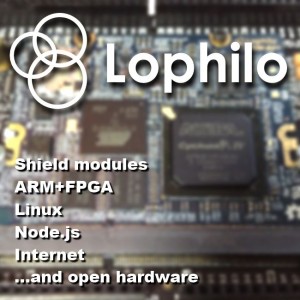From Proto-boards, shield-modules to Linux and the Internet, a panorama of Lophilo
Between hobbyists’ and professionals’ internet-enabled hardware devices, there’s a market gap that Lophilo aims to fill. Creating hardware connected devices is challenging; it requires a balance between inherently event-oriented user interfaces and reliable real-time control of hardware. To address this problem, we’ve combined industrial-level design approaches with a focus on ease of use to create Lophilo. Lophilo is a maker’s development platform consisting of an embedded system of ARM and FPGA with multiple shields for specialized needs, plenty of I/O pins, and Node.JS, resulting in a featureful and flexible system. Application domains include but are not limited to: robotics, software radio, internet devices, and teaching platforms for software and system development.
About Ricky Ng-Adam and Shyu Lee (Xu Li)
Ricky Ng-Adam (rngadam@lophilo.com) An ex-Googler, he spent four years as a Software Engineer in Test enjoying the free food. He now spends all of his time on open-source technology and innovative organizations. Ricky is working with Shyu on the Lophilo project. With his ideas and background in systems software engineering, Ricky has enabled an open source JavaScript development environment with direct access and operation of the hardware as the core of Lophilo’s user interface.
Shyu Lee (Xu Li) (shyul@lophilo.com) is a hardware engineer running his own office in Shanghai. After Shyu met Ricky, he suddenly realized that innovators’ communities were extremely fun and engaging and were great to exchange ideas with enthusiastic people. Shyu has designed the hardware of Lophilo from draft-up to manual assembly. The Lophilo’s shield module system and FPGA interface designed by Shyu are expected to reduce the user’s cost while bringing a lot of fun to the development process.


